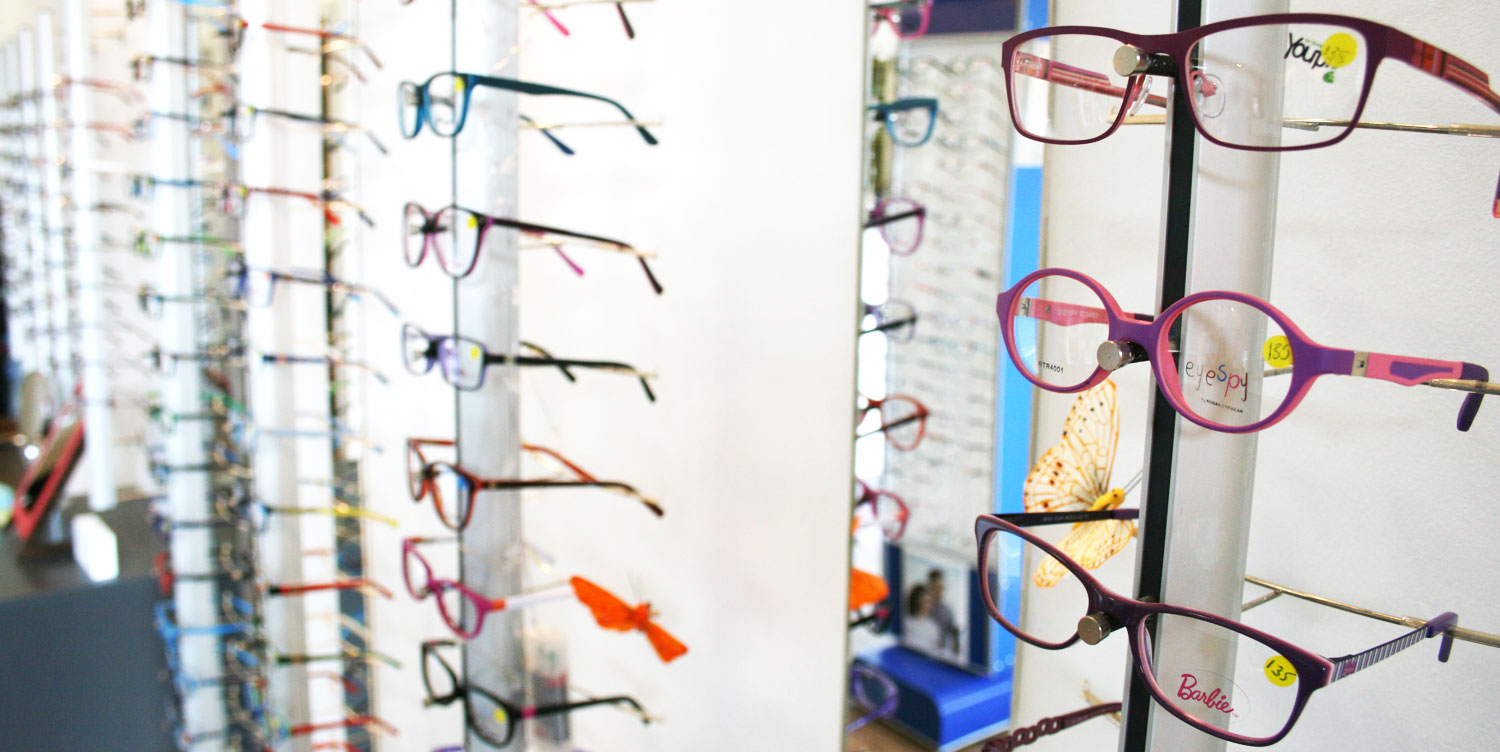
Children’s Glasses

Eye Care for Children
Selecting the correct optometrists to care for your child’s eyes doesn’t have to be another worry to add to your parenting list. We understand that it can be difficult for parents to find the level of expertise that they require, especially where children are concerned.
Caring for your children’s eyes
Our eyes are also vulnerable to damage from the sun and children’s eyes are the most vulnerable of all.
- 50 to 80% of sun exposure over our lifetime is done before the age of 18.
- Children’s eyes are more transparent to the sun and allow more of the harmful rays into their eyes.
- Children are more likely to be participating in outdoor sports activities which leave them more vulnerable to damage from UV light.
- Children are more likely to be wearing cheap sunglasses.
What are the effects of UV damage to a child’s eyes?
In the short term, children who have been exposed to UV light for long periods e.g.: skiing, outdoor swimming pool or at the beach, can develop photokeratitis; this is sunburn of the eye and causes red, sore, gritty eyes which are watery and light sensitive. Photokeratitis is very uncomfortable but after a day or so will resolve, once the child is kept out of the sun. In the long term, continued over exposure to UV light can lead to eye problems in adulthood including;
- Cancers of the eye lids
- Cataracts
- Growths on the surface of the eye such as Pterygium or Pinguecula
- Increased risk of sight threatening condition, Age Related Macular Degeneration; AMD.
How to play safe in the sun:
This is not saying keep you children out of the sun; sunshine and outdoor activities are vitally important to a child’s normal development. Following safety tips and leading by example means that your child can enjoy plenty of holiday sun and even the odd bit of Irish sun when we get it;
- Do not allow your child to wear “play” or “fun” sunglasses; they can do more damage to the eye.
- Your child should use plenty of sunscreen and wear a wide brimmed sunhat
- If you child wears sunglasses they should be the correct fit, wrap around the face, and have lenses which are fully UVA and UVB lenses and are impact resistant.
- If your child gets sand in his/her eyes, do not allow the child to rub his/her eyes, rinse the eyes with plenty of water and allow the child to cry to wash out the sand.
- Chlorinated swimming pools can cause chemical burns to the eyes; your child should always wear swimming goggles preferably with a UV filter built in.
- If your child wears spectacles all the time, consider getting prescription sunglasses or transition lenses in their glasses.
- Lead by example! Get your children used to the idea of wearing sun protection.




